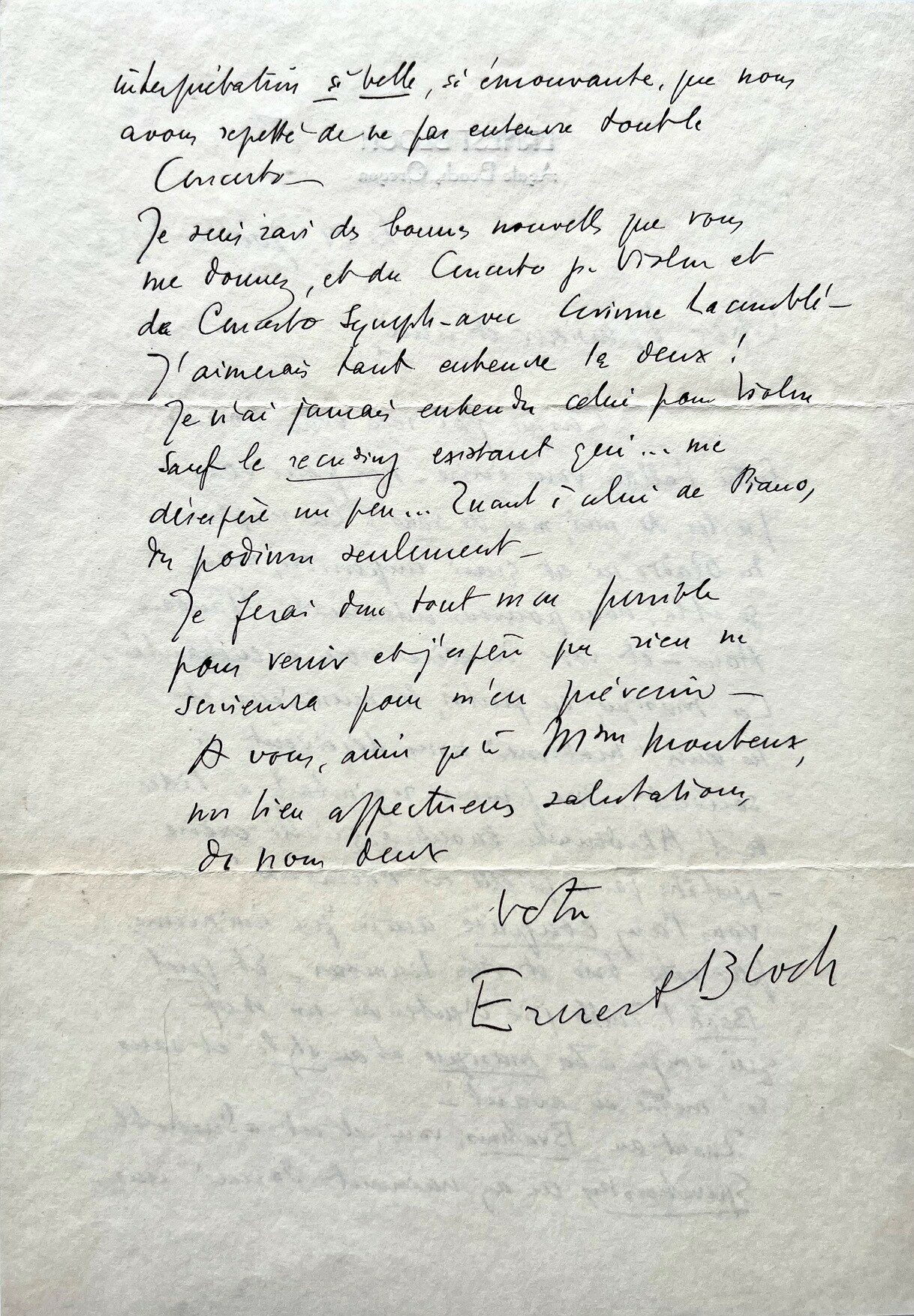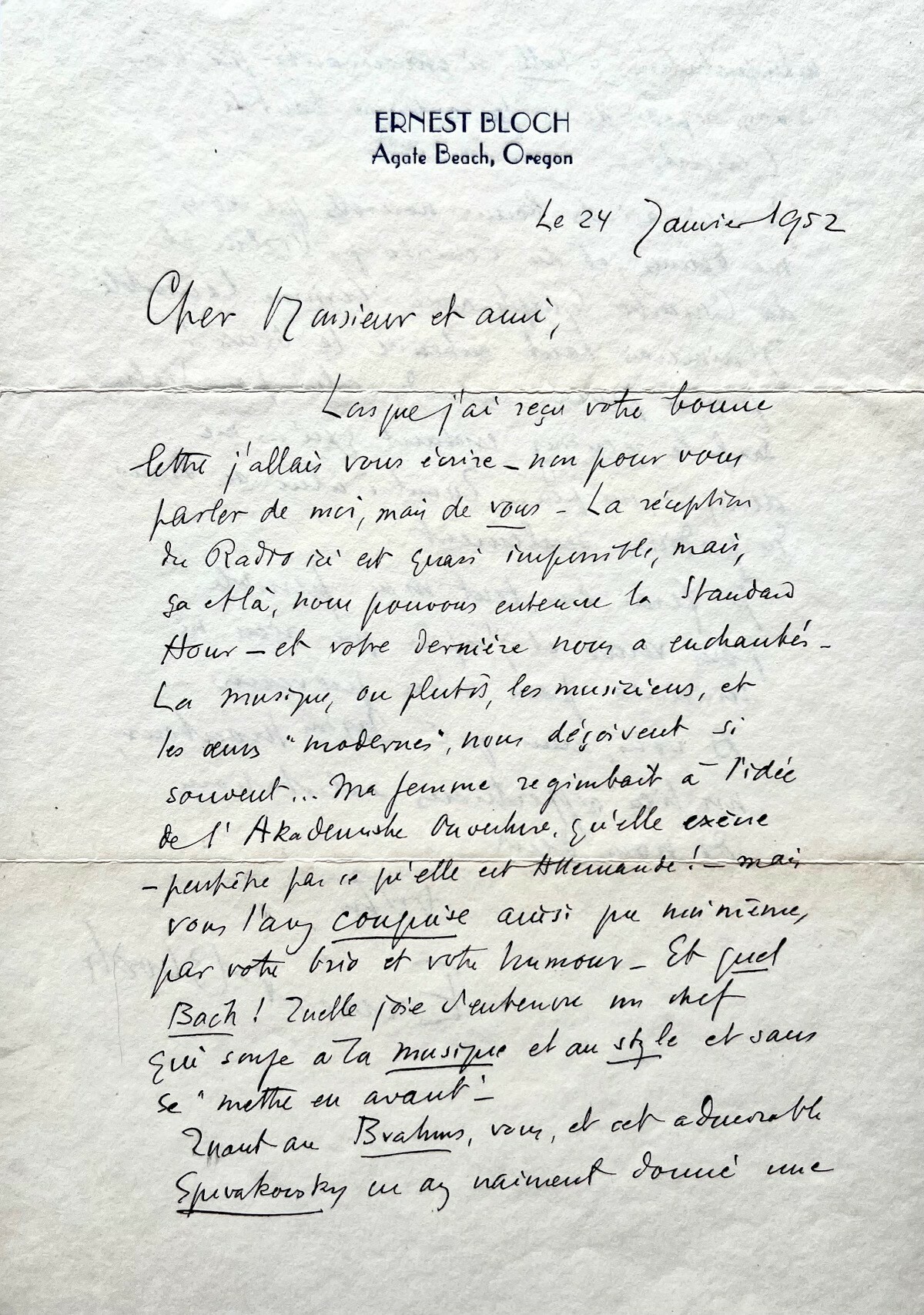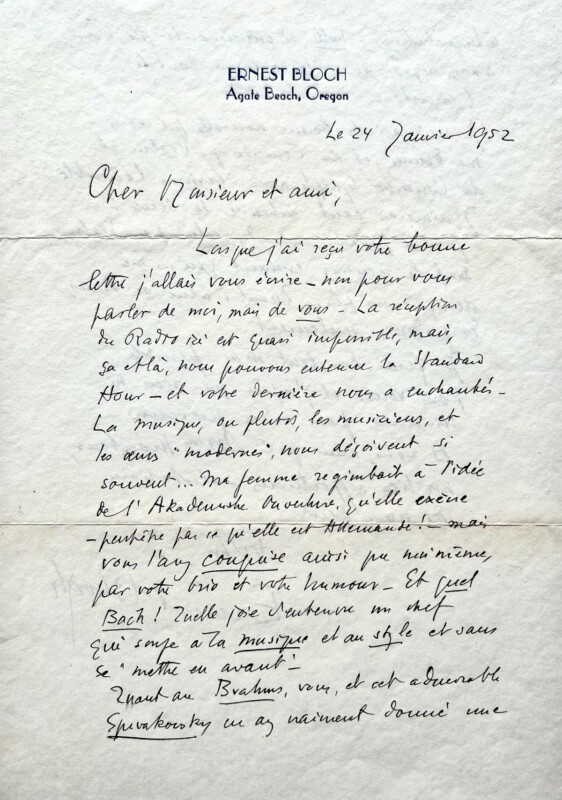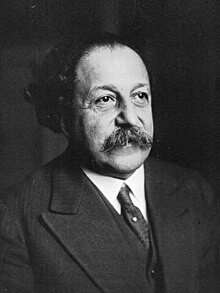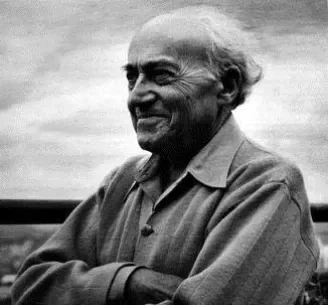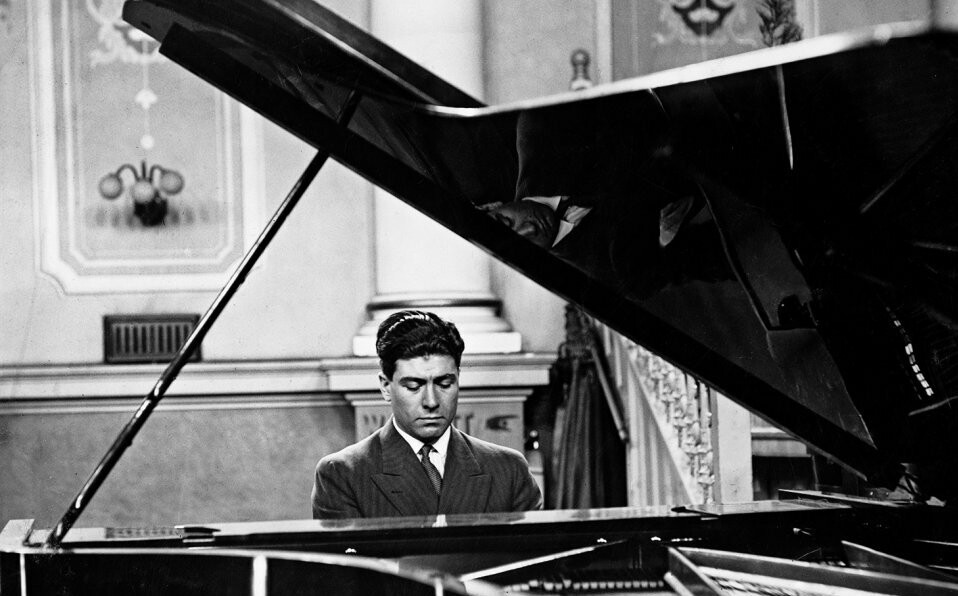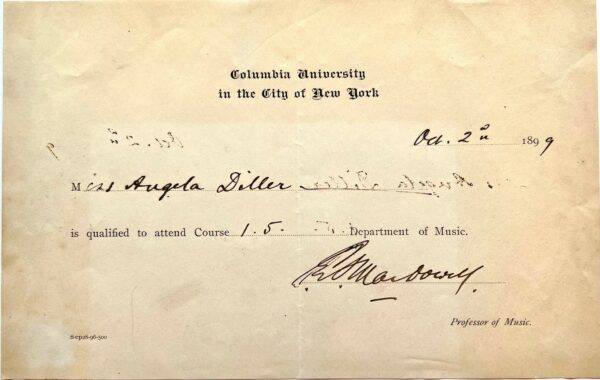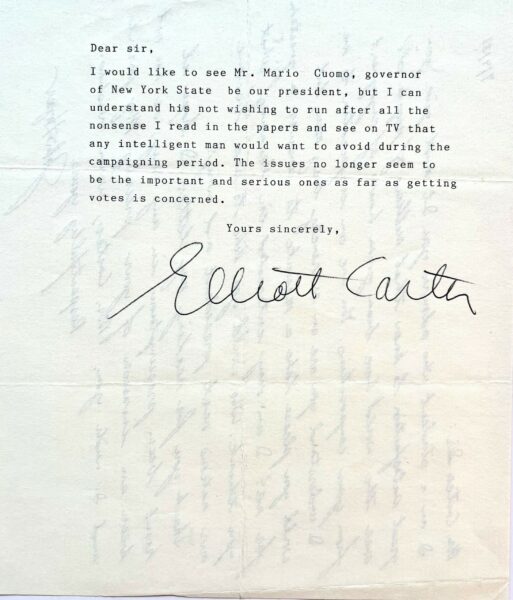BLOCH, ERNEST. (1880-1959). Swiss-born, American composer of Schelomo and other masterpieces. ALS. (“Ernest Bloch”). 2pp. Small 4to. Agate Beach, January 24, 1952. (To French-born, American conductor PIERRE MONTEUX, 1875-1964). On Bloch’s personal stationery. In French with translation.
“As soon as I received your letter, I was going to write to you, not to speak of myself but of you. The radio reception here is practically impossible, but off and on we can get the Standard Hour – and we enjoyed your last one. The music, or rather the musicians and the ‘modern’ works disappoint us so often… My wife balked at the notion of the Akademische Ouverture, which she detests – perhaps because she is German! – but you have conquered her as well as me, by your brilliance and your humor – And what a Bach! What joy to hear a conductor who [considers?] music and style and this without ‘putting himself forward’!
As for the Brahms, you and that admirable Spivakovsky delivered such a beautiful and moving interpretation that we were sorry not to hear the entire concerto.
I was pleased to hear that all is well and to hear about the violin concerto and the Symph. Concerto with Corinne Lacenoblé [?] I would love to hear both of them! I have only heard the one for violin on the existing recording which… disheartens me a bit. And the one for piano, only from the podium.
I will do everything possible to come, and I hope nothing will come up to stop me. To you, as well as to Mme. Monteux, my warmest greetings from both of us…”

